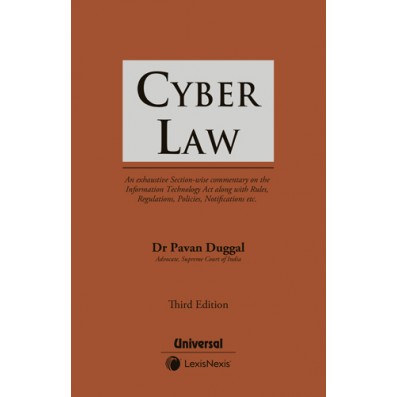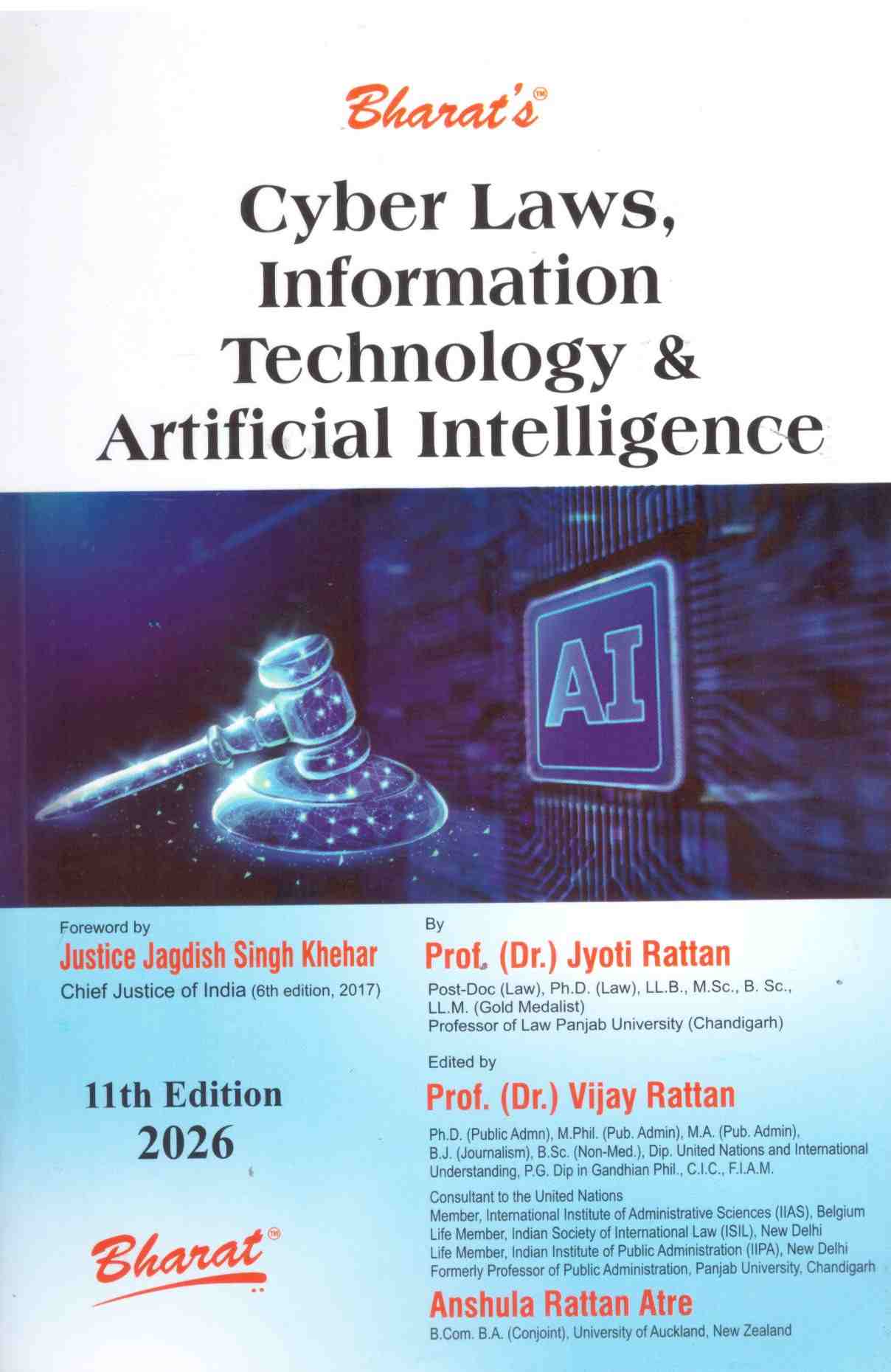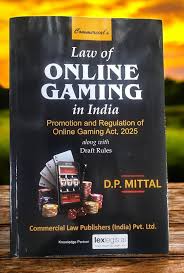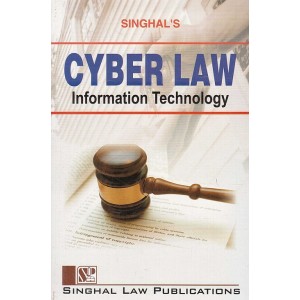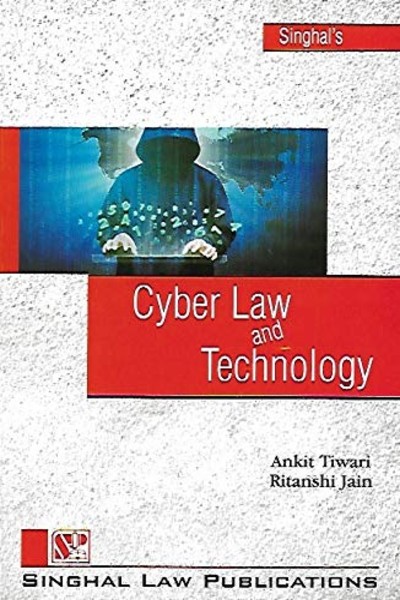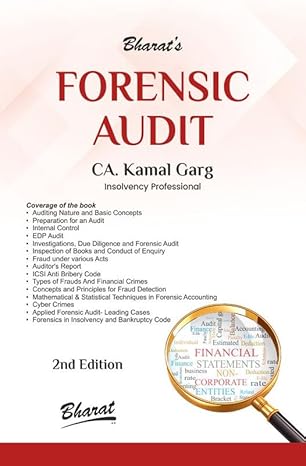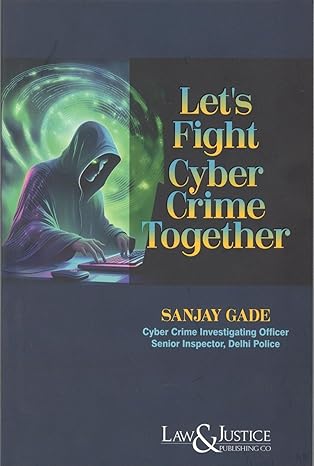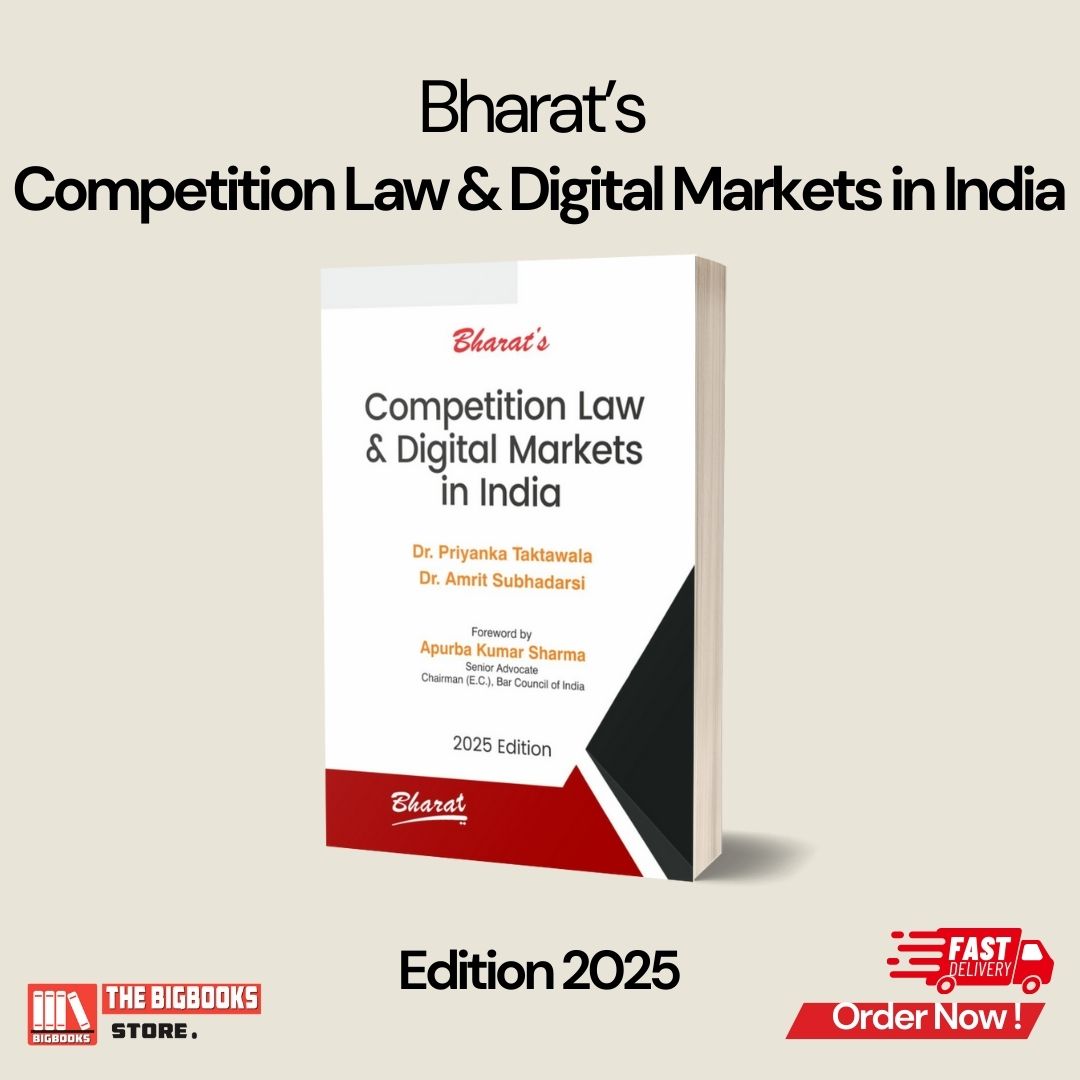LexisNexis's Cyber Law - 3rd Edition 2025
| Author : | Dr Pavan Duggal |
|---|
LexisNexis’s Cyber Law – 3rd Edition, 2025
LexisNexis’s Cyber Law – 3rd Edition, 2025 is an authoritative and updated work that comprehensively examines the legal framework governing cyberspace, digital transactions, data protection, and cybercrimes in India. With the rapid evolution of technology, digital commerce, artificial intelligence, and data-driven platforms, cyber law has become one of the most critical areas of modern legal practice. This revised edition incorporates the latest amendments, judicial pronouncements, and global developments, making it an indispensable resource for legal practitioners, academicians, IT professionals, policymakers, and students of law.
The book provides detailed insights into the Information Technology Act, 2000 and its subsequent amendments, including the IT (Amendment) Act, 2008, while also analyzing the impact of new developments in the field such as the Digital Personal Data Protection Act, 2023, intermediary liability regulations, cyber security frameworks, and evolving jurisprudence on privacy rights under Article 21 of the Constitution. It also discusses India’s regulatory approach in light of global standards such as the GDPR, OECD guidelines, and cyber treaties.
Written in a structured and reader-friendly manner, the 3rd Edition addresses critical themes such as online contracts, electronic governance, intellectual property in cyberspace, cybercrimes (hacking, phishing, ransomware, identity theft), data security obligations, and cross-border jurisdictional issues. With real-world case laws, expert commentary, and practical implications, the book equips readers to understand both theoretical concepts and their practical enforcement in courts and regulatory bodies.
Key Features:
-
Comprehensive Coverage of Cyber Law: Discusses IT Act, 2000 and amendments, cybercrime provisions, data protection, intermediary liability, and cyber forensics.
-
Latest Updates for 2025: Incorporates the Digital Personal Data Protection Act, 2023, CERT-In guidelines, global privacy standards, and judicial developments up to 2025.
-
Focus on Cybercrimes and Remedies: Examines offences such as hacking, phishing, identity theft, cyber terrorism, and provides clarity on penalties, remedies, and investigative procedures.
-
E-Governance & E-Commerce: Explains legal recognition of e-signatures, online contracts, electronic records, and their enforceability under Indian law.
-
Intellectual Property in Cyberspace: Covers domain name disputes, software piracy, copyright and trademark infringement in the digital domain.
-
Privacy & Data Protection: Explores constitutional principles, international standards, and India’s evolving data protection regime.
-
Practical Insights: Case laws, regulatory guidelines, and expert commentary on compliance strategies for corporates, startups, and digital service providers.
-
Cross-Border & Jurisdictional Issues: Discusses enforcement challenges in cases involving multiple jurisdictions and applicability of international conventions.
-
User-Friendly Format: Structured with section-wise commentary, illustrations, and comparative analysis for easy reference.
Why This Book is Essential:
-
Updated and Practical Resource: Aligns with the latest Indian and international legal frameworks governing cyberspace and digital transactions.
-
Trusted by Legal Professionals: Published by LexisNexis, known for accuracy and authority in legal publishing.
-
Bridges Theory with Practice: Offers actionable insights for litigation, corporate compliance, and academic research.
-
Ideal for Multiple User Segments: A must-have for advocates, corporate legal teams, IT professionals, compliance officers, law students, and judiciary aspirants.
-
Strengthens Knowledge in Emerging Areas: Equips readers with the ability to handle cases, advisory work, and compliance issues in the rapidly expanding field of cyber law.
LexisNexis’s Cyber Law – 3rd Edition, 2025 is an essential guide to understanding the complexities of cyberspace regulation in India. With its blend of statutory analysis, judicial developments, and practical applications, this book stands as an indispensable resource for mastering the law in the digital era.

